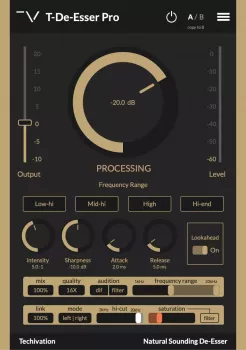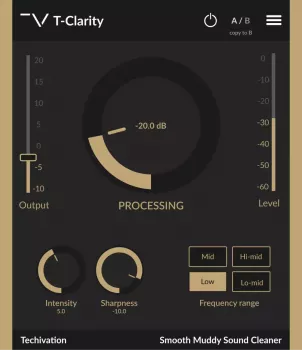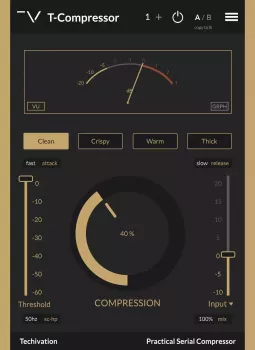 Last updated 12/2020
Last updated 12/2020
MP4 | Video: h264, 1280×720 | Audio: AAC, 44.1 KHz
Language: English | Size: 2.68 GB | Duration: 2h 55m
Learn Classical Guitar and build a repertoire of solos by famous composers – for beginners & classical guitar “newbies”
What you’ll learn
Develop classical guitar technique through playing EASY guitar solos
Learn Classical Guitar fundamentals and terminology
Gain insites that you wouldn’t easily understand if you only follow the book
Requirements
Reading music is not required, but is a plus
A guitar to practice on: Classical nylon string is best, although acoustic, or even electric can be used to begin your journey into the classical guitar world
Taking the “Learn Fingerstyle Guitar & Read Music” course together, or before this one will help
Description
Learn the fundamentals of Classical Guitar while building a repertoire of solos. Solos are written by famous guitar, and non-guitar, composers. This class is suitable for:classical guitar beginnersplayers of other styles wishing to learn classical guitar techniquethose who want to develop their music reading and playing skills in 1st position on guitarThe first solo in the course is the most simple. This allows you focus on the finer points of classical playing. Then, as you progress through the course, each solo builds on techniques learned from previous pieces. These music pieces are the same as the first 10 solos from the book, 50 Easy Classical Guitar Solos, by Jerry Willard. Jerry’s compilation of pieces was done thoughtfully so that the order of pieces is in order of progressive difficulty.The book is published with both Standard Notation and Tabulated Notation (TAB). Tutorial videos in this course also have both standard notation and TAB throughout. There are two sets of play-along videos provided. Choose from either the dual TAB and standard notation, or use the standard notation only. Or, begin by using the dual notation, then try using the standard notation only.Jerry Willard’s book is recommended for practice away from the videos, but is not required for the course.Pdf copies of standard notation ONLY are provided as a resource in the course:to help move away from dependence on the TABto offer additional fingerings throughout where they are not shown in the bookYou are also encouraged to post questions and comments through the Q and A part of the course. This can not only help you, but also others who may have the same concerns.
Overview
Section 1: Introduction to Basic Classical Guitar Techniques
Lecture 1 What’s in the Course and What Can You Learn?
Lecture 2 Nomenclature of the guitar
Lecture 3 How to Hold Classical Guitar
Lecture 4 Playing Tirando – Right Hand Technique
Lecture 5 Playing Apoyando – Right Hand Technique
Lecture 6 Playing Block Chords
Lecture 7 Tablature and Standard Notation Explained
Lecture 8 Fingernail Preparation
Section 2: Solo 1 – Lesson, Fernando Sor
Lecture 9 #1 Lesson – (Full Tempo)
Lecture 10 #1 Lesson Tutorial (Intro)
Lecture 11 #1 Lesson Tutorial (Page 1)
Lecture 12 #1 Lesson Tutorial (Page 2)
Lecture 13 #1 Lesson, Fernando Sor (Slow)
Lecture 14 #1 Lesson, Fernando Sor (Slow – TAB)
Section 3: Solo 2 – Study in C, Fernando Sor
Lecture 15 #2 Study in C (Full Tempo)
Lecture 16 Solo 2 Tutorial
Lecture 17 #2 Study in C – (Slow)
Lecture 18 #2 Study in C – (Slow – TAB)
Section 4: Solo 3 – Andantino, Joseph Küffner
Lecture 19 #3 Andantino (Full Tempo)
Lecture 20 #3 Andantino, Küffner (Tutorial)
Lecture 21 #3 Andantino, Küffner (Slow)
Lecture 22 #3 Andantino, Küffner (Slow -TAB)
Section 5: Solo 4 – Andantino(2), Joseph Küffner
Lecture 23 #4 Andantino(2), Küffner Playthrough
Lecture 24 #4 Andantino(2), Tutorial
Lecture 25 #4 Andantino(2), Joseph Küffner (Slow)
Lecture 26 #4 Andantino(2), Joseph Küffner (Slow -TAB)
Section 6: Solo 5 – Waltz, Dionisio Aguado
Lecture 27 #5 Waltz, Dionisio Aguado – Playthrough
Lecture 28 #5 Waltz, Aguado (Tutorial)
Lecture 29 #5 Waltz, Dionisio Aguado (Slow)
Lecture 30 #5 Waltz, Dionisio Aguado (Slow – TAB)
Section 7: Solo 6 – Andantino, Matteo Carcassi
Lecture 31 #6 Andantino, Matteo Carcassi Playthrough
Lecture 32 #6 Andantino, Carcassi (Tutorial)
Lecture 33 #6 Andantino, Matteo Carcassi (Slow)
Lecture 34 #6 Andantino, Matteo Carcassi (Slow – TAB)
Section 8: Solo 7 – Waltz, Ferdinando Carrulli
Lecture 35 #7 Waltz, Carrulli (Playthrough)
Lecture 36 #7 Waltz, Carrulli (Tutorial)
Lecture 37 #7 Waltz, Ferdinando Carrulli (Slow)
Lecture 38 #7 Waltz, Ferdinando Carrulli (Slow – TAB)
Section 9: Solo 8 – Study, Ferdinando Carulli
Lecture 39 #8 – Study, Carulli (Playthrough)
Lecture 40 #8 Study, Carrulli (Tutorial)
Lecture 41 #8 – Study, Carulli (Slow)
Lecture 42 #8 – Study, Carulli (Slow – TAB)
Section 10: Solo 9 – Andantino, Fernando Sor
Lecture 43 #9 Andantino, Sor (Playthrough)
Lecture 44 #9 Andantino, Sor (Tutorial)
Lecture 45 #9 Andantino, Fernando Sor (Slow)
Lecture 46 #9 Andantino, Fernando Sor (Slow – TAB)
Section 11: Solo 10 – Andante, Fernando Sor
Lecture 47 #10 Andante,Sor (Playthrough)
Lecture 48 #10 Andante,Sor (Tutorial)
Lecture 49 #10 Andante, Fernando Sor (Slow)
Lecture 50 #10 Andante, Fernando Sor (Slow – TAB)
Classical guitar beginners, or players of other styles who want to learn classical guitar technique





